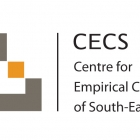The Centre for Empirical Cultural Studies of South-East Europe - CECS
- Email Address: cesk2010@gmail.com
- Phone: +38118241227 (office) +38118241227 (fax)
- Website: http://www.cesk.org.rs
- Address: Katićeva 3A/22, Niš, Serbia
Information
The Centre for Empirical Cultural Studies of South-East Europe (CECS) is an independent research institute established in March 2010. The Centre cooperates with a large number of researchers in the region of Southeast Europe and around the world, but its nucleus is comprised of ten members from Serbia, out of whom five are sociologists, while the rest of the team includes psychologists, linguists, statisticians and cultural managers. Five of the ten members teach at universities in Niš, Belgrade, Novi Sad and Kragujevac. In addition to these experienced researchers, the Centre also has three junior researchers who are Ph.D. students of sociology at the University of Belgrade and the University of Niš.
The research activities of CECS are focused on reserach of cultural phenomena in the region of Southeast Europe. The Centre follows, analyzes, and evaluates implicit and explicit cultural policies of the countries of SEE region and takes part in formulating strategies of cultural policy and other strategies and public policies related to it. In addition, the Centre realizes other sociological, socio-psychological, and psychological research.
During the past three years, three macro-research projects have been realized within the Regional Research Promotion Programme: ”Social and Cultural Capital in Serbia” (2010-2011), ”Social and cultural capital in Serbia: Symblic struggles in society in Serbia” (2011-2012) and the regional project ”Resistance to socio-economic changes in Western Balkan societies” (2012 – 2013). Parallel to these activities, CECS members have been engaged as moderators for the development of cultural development strategies of cities in Serbia and Montenegro (Niš, Vranje, Novi Pazar, Kotor, Tivat, Herceg Novi), as well as in the role of evaluators of national and international projects in the field of culture.
Categories
- → Foundations
- → Institutes
- → Journals
- → Networks
- → Newsletters
- → Organizations
- → Researchers
- → Talent Pool
- → UNESCO Chairs
- → Universities
Events Calendar
07 / 2024| Mon | Tue | Wed | Thu | Fri | Sat | Sun |
|---|---|---|---|---|---|---|
| 1 | 2 | 3 | 4 | 5 | 6 | 7 |
| 8 | 9 | 10 | 11 | 12 | 13 | 14 |
| 15 | 16 | 17 | 18 | 19 | 20 | 21 |
| 22 | 23 | 24 | 25 | 26 | 27 | 28 |
| 29 | 30 | 31 | 1 | 2 | 3 | 4 |















